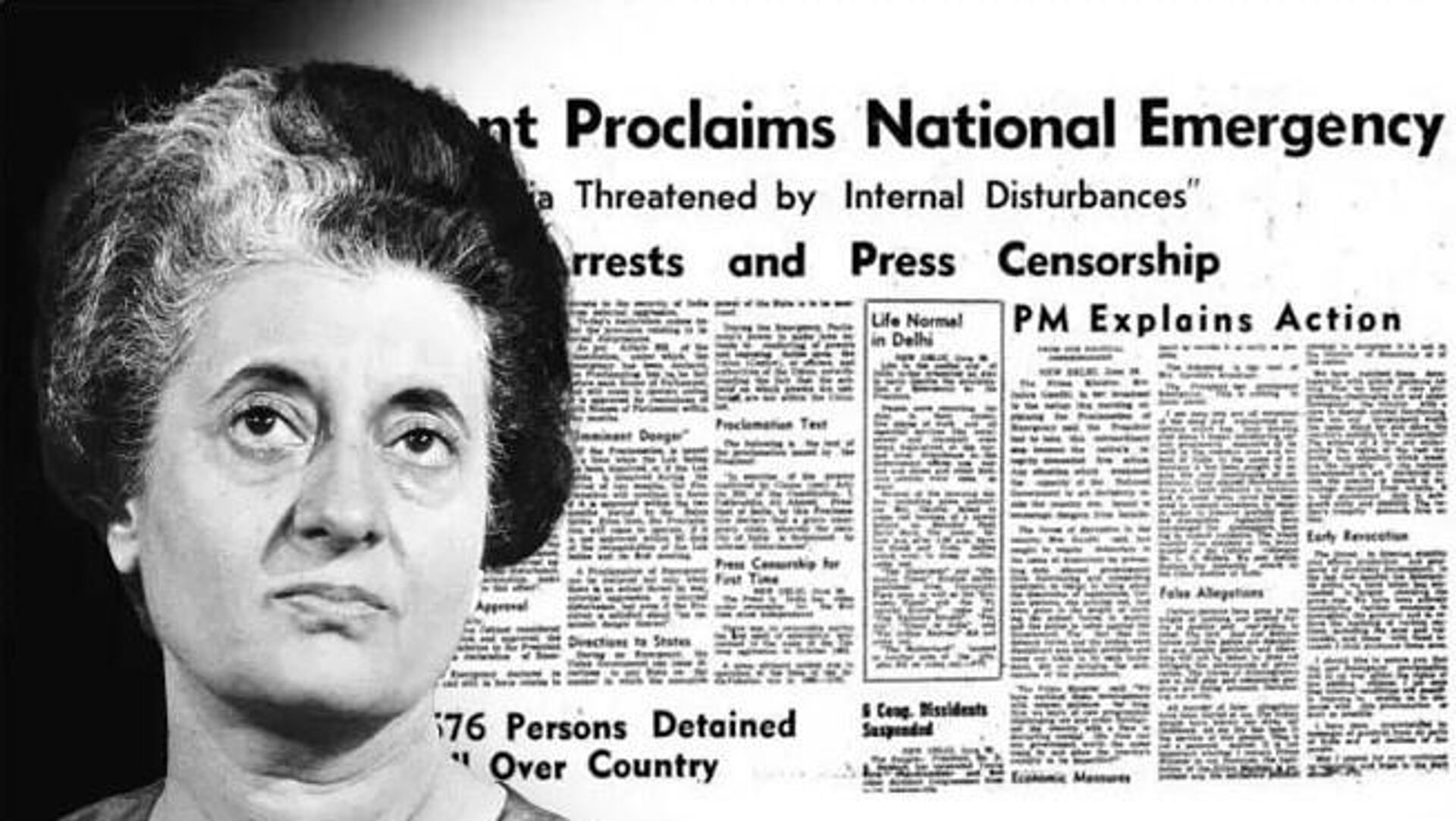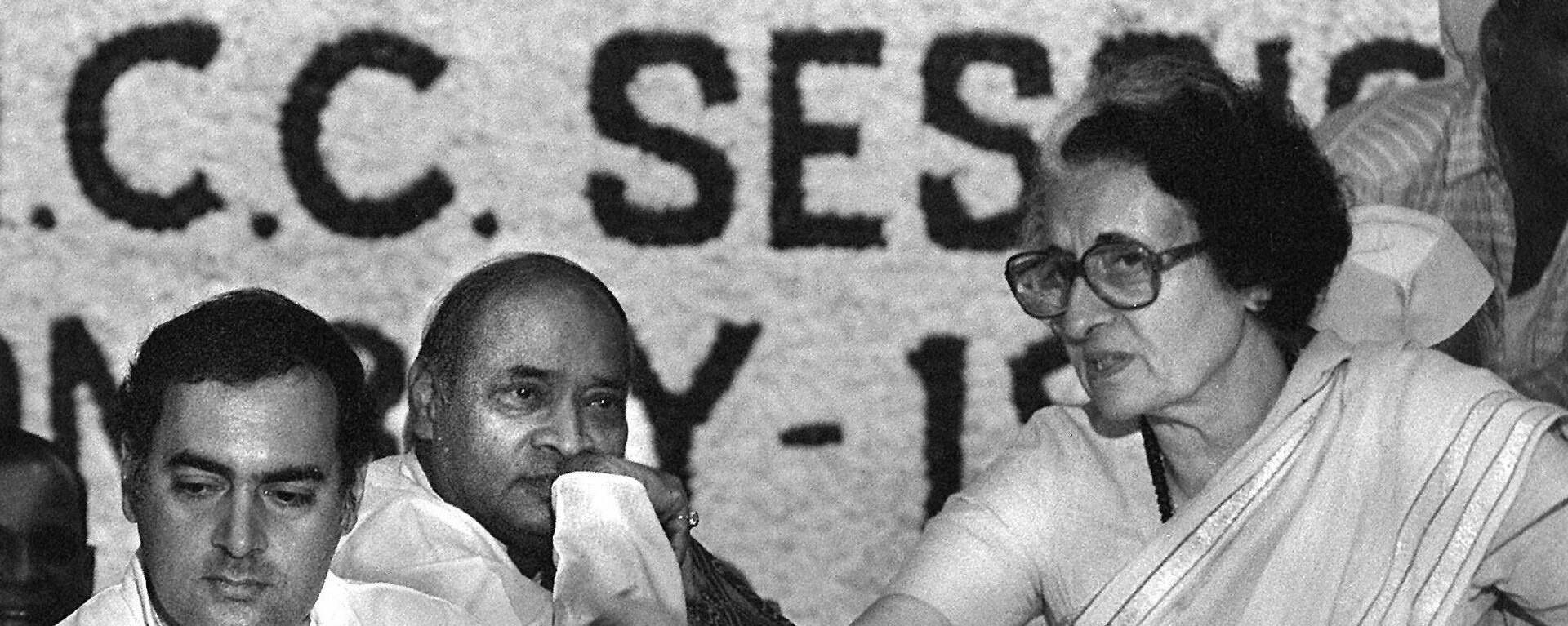https://sputniknews.in/20240625/the-1975-emergency-could-have-been-avoided-7703358.html
"The 1975 Emergency Could Have Been Avoided"
"The 1975 Emergency Could Have Been Avoided"
Sputnik India
The 1975 Emergency remains the most controversial chapter of Indian democracy after independence. The 21-month period witnessed crackdown on civil liberties, arrest of opposition, and censorship of press.
2024-06-25T20:18+0530
2024-06-25T20:18+0530
2024-06-26T10:24+0530
sputnik opinion
india
government of india
india-pakistan war of 1971
indian national congress (inc)
indira gandhi
bharatiya janata party (bjp)
law and order
civil unrest
human rights
https://cdn1.img.sputniknews.in/img/07e8/06/19/7704591_0:0:654:369_1920x0_80_0_0_836a045004091bff34f530183ab47261.jpg
June 25th commemorates the anniversary of the 1975 Emergency declared by then President Fakhruddin Ali Ahmed upon the advice of Prime Minister Indira Gandhi.Gandhi imposed the Emergency hours after the Supreme Court granted a conditional stay on the Allahabad High Court verdict declaring her election to Lok Sabha null and void and instructed her to stay away from parliamentary proceedings.The top court also ruled that the privileges which Gandhi had enjoyed as a Member of Parliament would no longer be applicable, and she was even barred from voting but was allowed to continue as Prime Minister.Gandhi justified the Emergency by citing a deep and widespread conspiracy against her government and internal disturbances.Reasons for Emergency Not WarrantedPolitical analyst Vinod Kumar Shukla told Sputnik India that the reasons given to justify the 1975 Emergency were not valid.Shukla argued that the internal disturbances in the country were too minor for the Emergency to be considered a viable solution. He further pointed out that in a democratic nation, citizens have the right to express their dissatisfaction with the government. Therefore, he claimed that invoking an Emergency based on internal disturbances is not justified.Shukla underscored that Gandhi's decision to enact the mode was primarily motivated by the fear of losing elections.He further noted that it was suggested that Indira Gandhi could have tolerated the defeat but her son Sanjay Gandhi was not ready to accept it, so he convinced her to declare the Emergency.Avoiding Emergency through DialogueShukla believes that the law and order situation in the country is a state subject, so Indira Gandhi could have given powers to the government to handle the situation, moreover it could have been curtailed by deploying paramilitary forces.Meanwhile, in order to address the mounting anger among the populace, Indira Gandhi should have engaged in one-on-one talks with various groups such as student unions, labour unions, and railway federations who were voicing their concerns, he asserted. However, instead of taking this course of action, she made a hasty decision, Shukla concluded.
https://sputniknews.in/20231030/why-was-indias-ex-pm-indira-gandhi-assassinated-5138983.html
india
Sputnik India
feedback.hindi@sputniknews.com
+74956456601
MIA „Rossiya Segodnya“
2024
Rahul Trivedi
https://cdn1.img.sputniknews.in/img/07e6/0c/13/136500_0:0:628:627_100x100_80_0_0_72097ff894c7446b70d2efafcb719720.jpg
Rahul Trivedi
https://cdn1.img.sputniknews.in/img/07e6/0c/13/136500_0:0:628:627_100x100_80_0_0_72097ff894c7446b70d2efafcb719720.jpg
News
en_IN
Sputnik India
feedback.hindi@sputniknews.com
+74956456601
MIA „Rossiya Segodnya“
Sputnik India
feedback.hindi@sputniknews.com
+74956456601
MIA „Rossiya Segodnya“
Rahul Trivedi
https://cdn1.img.sputniknews.in/img/07e6/0c/13/136500_0:0:628:627_100x100_80_0_0_72097ff894c7446b70d2efafcb719720.jpg
anniversary of 1975 emergency, fakhruddin ali ahmed, indira gandhi, indira gandhi imposed emergency in india, bjp criticises congress on emergency, why emergency is imposed, farmers' protest, protest against caa, economic crisis, 1971 india pakistan war, 1971 liberation war
anniversary of 1975 emergency, fakhruddin ali ahmed, indira gandhi, indira gandhi imposed emergency in india, bjp criticises congress on emergency, why emergency is imposed, farmers' protest, protest against caa, economic crisis, 1971 india pakistan war, 1971 liberation war
"The 1975 Emergency Could Have Been Avoided"
20:18 25.06.2024 (Updated: 10:24 26.06.2024) The 1975 Emergency stands out as the most controversial chapter of Indian democracy following independence. During that 21-month period, there was a notable crackdown on civil liberties, numerous arrests of opposition figures, and widespread censorship of the press.
June 25th commemorates the anniversary of the 1975 Emergency declared by then President Fakhruddin Ali Ahmed upon the advice of Prime Minister Indira Gandhi.
Gandhi imposed the Emergency hours after the Supreme Court granted a conditional stay on the Allahabad High Court verdict declaring her election to Lok Sabha null and void and instructed her to stay away from parliamentary proceedings.
The top court also ruled that the privileges which Gandhi had enjoyed as a Member of Parliament would no longer be applicable, and she was even barred from voting but was allowed to continue as Prime Minister.
Gandhi justified the Emergency by citing a deep and widespread conspiracy against her government and internal disturbances.
Reasons for Emergency Not Warranted
Political analyst Vinod Kumar Shukla told Sputnik India that the reasons given to justify the 1975 Emergency were not valid.
"Generally, there are three reasons when an Emergency can be declared in any country – an economic crisis, internal disturbance and external aggression. The reason given by Indira Gandhi was an internal disturbance in the country, but it was rather unrest against the government because of which Congress' defeat in the next election was evident," he contended.
Shukla argued that the internal disturbances in the country were too minor for the Emergency to be considered a viable solution. He further pointed out that in a democratic nation, citizens have the right to express their dissatisfaction with the government. Therefore, he claimed that invoking an Emergency based on internal disturbances is not justified.
Shukla underscored that Gandhi's decision to enact the mode was primarily motivated by the fear of losing elections.
"Gandhi believed that she will be able to make things better for the party but the decision to impose [the] Emergency backfired, and the party had to face a defeat in the 1977 general elections," the expert said.
He further noted that it was suggested that
Indira Gandhi could have tolerated the defeat but her son Sanjay Gandhi was not ready to accept it, so he convinced her to declare the Emergency.
Avoiding Emergency through Dialogue
Shukla believes that the
law and order situation in the country is a state subject, so Indira Gandhi could have given powers to the government to handle the situation, moreover it could have been curtailed by deploying paramilitary forces.
"There was a law and order situation in the country in some pockets but it is the duty of any government to control such a situation. If you see a lot of protests have happened in the previous few years like [the] farmers' protest, protest against [the] Citizenship Act, etc, but that doesn't mean that [an] Emergency should be imposed," Shukla stated.
Meanwhile, in order to address the mounting anger among the populace, Indira Gandhi should have engaged in one-on-one talks with various groups such as student unions, labour unions, and railway federations who were voicing their concerns, he asserted. However, instead of taking this course of action, she made a hasty decision, Shukla concluded.



